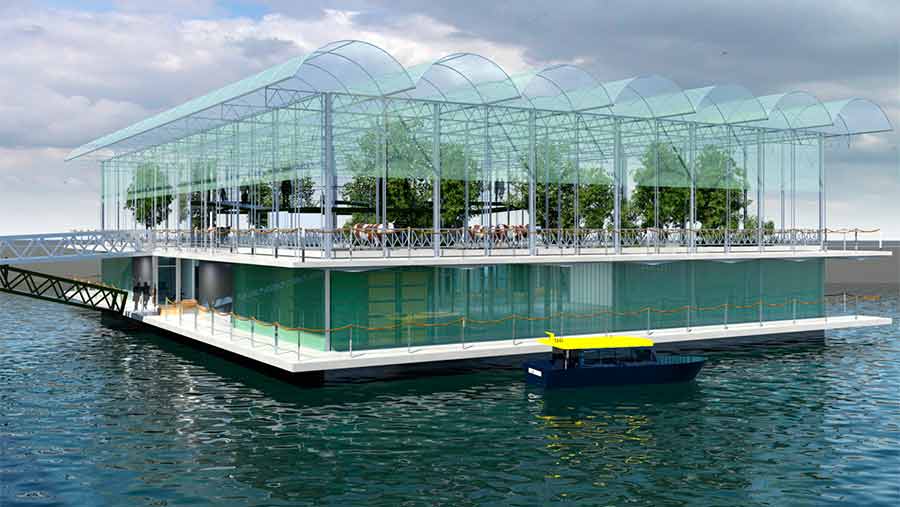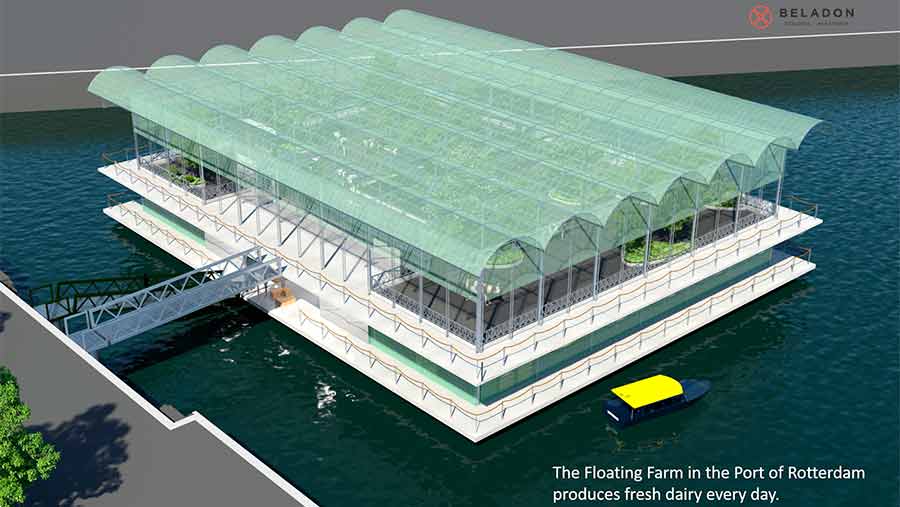Plans unveiled for high-tech floating dairy farm
Plans have been unveiled for the world’s first floating dairy farm, which will sit in the port at Rotterdam in the Netherlands supplying milk to local consumers.
The project aims to address the problem of how to feed a growing population when competition for land is growing.
It also seeks to reduce the distance that milk and other dairy products need to be transported to urban consumers, reducing greenhouse gas emissions and putting shoppers back in touch with nature and farming.
See also: 7 of the biggest farms in the world
The concept has been developed collaboratively by Courage, the innovation institute of the Dutch agriculture and dairy sector, Uit Je Eigen Stad, the national frontrunner on city farming and Beladon, a leading Dutch company on floating concepts.
The group claims that the idea has potential on a global level – revealing talks are already under way for a floating farm in New York – and the system could be also used to rear poultry, milk dairy goats and for horticultural cropping.

“As the Dutch have already lived with and on the water for hundreds of years, farming on water is no longer science fiction, but a logical step forward,” they said.
According to the project’s brochure, the aim is to build a pilot farm housing 60 dairy cows on a fully floating structure.
The cows will have access to a “cow garden” at the top of the structure, with a soft floor which will have the feel of a natural living environment. There will be trees and and bushes to offer areas of shade and the roof of the cow garden can be entirely opened.
Using a bridge between the farm and the dock, cows will also have access to an adjacent pasture when tides permit.

Additional grass, grown under LED lighting, will also be offered to the cattle, so the animals have access to fresh fodder all year round. Cows will be milked with a robotic milker.
Any bull calves or cows coming to the end of their productive life will be removed from the farm and sent to a local park.
If the project is successful, the aim is to scale it up so it houses 200 cows producing 5,000kg of milk each day.
Raw milk will be sold to the public via a “milk tap” and there will be vending machines for processed products. The farm will also sell milk to local shops, hotels and catering outlets.
Minke van Wingerden, a partner in Beladon, told Farmers Weekly that the construction of the farm would take about eight months and was yet to start.
However, initial experiments on the system were looking encouraging. “We call the project a living lab.
We are innovating and testing and there will also be an education centre for citizens in the neighbourhood and schools. We like to show how fresh healthy food can be produced in the city.”
